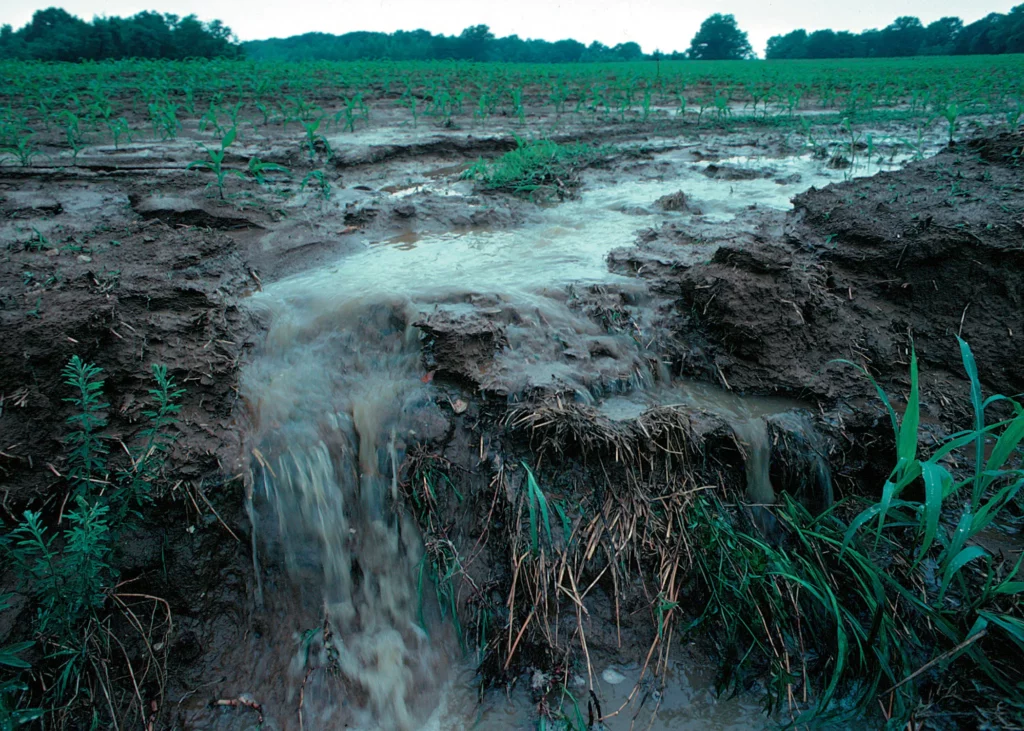
Nutrient runoff is a significant environmental issue that affects water quality and ecosystem health worldwide. So In this blog post, we’ll provide a brief overview of this effect , its causes, and its impacts on water quality, highlighting the importance of managing this effect for sustainable agriculture and environmental conservation.
What is Nutrient Runoff?
This thing refers to the movement of excess nutrients, primarily nitrogen and phosphorus, from agricultural fields, urban areas, and other sources into water bodies such as rivers, lakes, and coastal waters. These nutrients originate from various sources, including fertilizers, animal manure, sewage, and urban runoff, and can enter waterways through surface runoff or leaching into groundwater.
Causes of Nutrient Runoff:
1.Fertilizer Application:
So this Excessive application of fertilizers in agriculture can lead to nutrient runoff, but as unused nutrients are washed away by rainfall or irrigation water and transported into nearby water bodies.
2.Animal Manure:
Livestock operations generate large amounts of animal manure, which, if not properly managed, can contribute to this thing when washed away by rainwater or runoff from animal feeding areas.
3.Urban Runoff:
Urban areas with impervious surfaces such as roads, sidewalks, and parking lots can contribute to nutrient runoff by preventing water infiltration into the soil, leading to surface runoff carrying pollutants into waterways.
4.Soil Erosion:
Soil erosion caused by agricultural activities, deforestation, or construction activities can transport nutrients attached to soil particles into water bodies,so than thall contributing to nutrient runoff.
Impacts of Nutrient Runoff on Water Quality:
1.Eutrophication:
Nutrient runoff can lead to eutrophication, a process in which excess nutrients stimulate the growth of algae and aquatic plants in water bodies. This excessive growth depletes oxygen levels in the water, leading to fish kills, harmful algal blooms, and degradation of aquatic ecosystems.
2.Drinking Water Contamination:
Nutrient runoff can contaminate drinking water sources, such as rivers, lakes, and groundwater, with nitrates and other pollutants, meanwhile posing risks to human health, particularly for vulnerable populations such as infants and pregnant women.
3.Marine Dead Zones:
Excess nutrients from this thing can create marine dead zones, areas in coastal waters with low oxygen levels that are inhospitable to marine life. These dead zones can have severe ecological and economic consequences, impacting fisheries, tourism, and coastal economies.
4.Algal Blooms:
Nutrient runoff can fuel the growth of harmful algal blooms, which produce toxins that pose risks to human and animal health. These blooms can contaminate water supplies, harm aquatic ecosystems, and because it affect recreational activities such as swimming and boating.
Conclusion:
So this thing poses significant challenges to water quality, ecosystem health, and human well-being because Addressing this effect equires integrated management approaches that focus on reducing nutrient inputs, improving nutrient management practices in agriculture and urban areas, and implementing conservation measures to protect water resources. By mitigating this effect, but we can safeguard water quality, preserve aquatic ecosystems, and ensure the sustainability of our natural resources for future generations.
